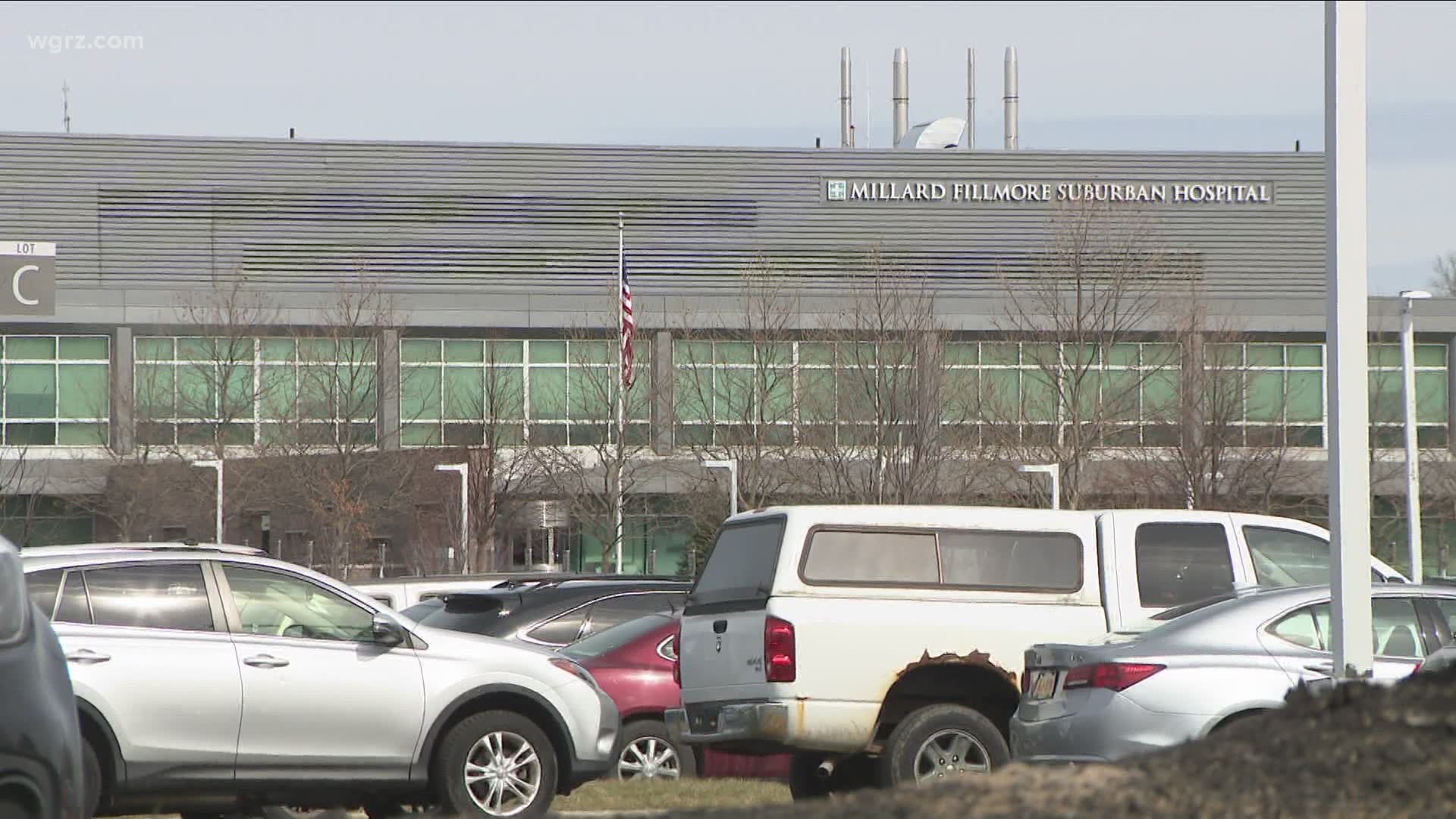BUFFALO, N.Y. — Reductions in staff at two Kaleida hospitals are putting patients and frontline workers at risk - that’s the message from two unions who have workers on the frontlines in the Covid pandemic.
Frontline workers at Millard Fillmore Suburban and Buffalo General say the conditions are unbearable as Covid hospitalizations continue to rise.
On one hand there's Kaleida Health, which says it's trying to improve patient care by giving certain frontline workers new roles.
On the other, there are unions and frontline workers themselves saying changes in how care is delivered are putting patients and workers at risk.
"We are being stretched to do impossible work as far as taking care the patients that you should be taking care of," said Charles Williams, personal care assistant at Buffalo General.
SEIU 1199 says 43 full-time equivalent positions within Kaleida have been cut impacting personal care assistants at Millard Fillmore Suburban and Buffalo General. CWA 1168 says 100 full-time equivalent medical assistants have been cut at Buffalo General.
But, a Kaleida spokesperson disputes this saying no one has been fired, workers have had their roles changed. 2 On Your Side wanted to get more clarity about this, but Kaleida didn't agree to an interview.
"All this is is a cost-savings measure for the hospital that's all it is you cannot take away people from the bedside and think that care is going to be better," said James Scordato, vice president for WNY hospitals at Local 1199.
A Kaleida spokesperson told The Buffalo News that personal care assistants have been reassigned to different units and that the changes empower nurses on patient care. Frontline workers tell us, they now have more work to do and are overwhelmed.
"Typically we receive some of the sickest patients from the area's hospital and I am going into work with a 1-30 ratio because they have optioned our staff to other departments," said Jennifer Hogue, a certified medical assistant at Buffalo General Hospital.
"Nurses have already quit they have already gone elsewhere they have already reached their breaking point and there are more nurses that have reached their breaking point," said Samantha Schopf, a registered nurse at Buffalo General, "every single morning I'm woken up at 5 am, ancillary staff please come in, we need multiple sitter calls, we need ancillary staff for the different departments."
Union officials say they're trying to put public pressure on Kaleida to reverse these changes, no walkouts or protests are planned.
On Thursday evening, Kaleida spokesperson, Michael Hughes issued a statement:
We have added nurses to the bedside over the past five years because patients that meet inpatient criteria for hospitalization are sicker than they were years ago. Nurses need to drive this acute care.
Let’s be clear: there is no job loss. Everyone affected will have an opportunity and seat, if they so choose, when all is said and done. All have been given options in the system. In addition to this, we are actively recruiting for PCAs and RNs. At MFS we have 28 PCA and 24 RN positions that we are currently working to fill. At Buffalo General we are actively recruiting 79 RNs & 33 PCAs.
This issue is simply about union leadership opposing change. The change, which is appropriate, is a redesign on how we deliver care to our patients. The PCA job description has not changed -- the process has changed.
In addition to this, important to point out that we have added nursing support over the past few years, to increase staffing and care. Buffalo General has hired an additional 74 FTEs of working RNs and MFS is at an additional 27. That’s a multi-million dollar investment.
The union leadership’s intent during this time is to leave things as they are. That’s not acceptable. As an organization and industry we need to operate on where health care is going, not where it is today nor how it was done in the past, which is what union leadership ultimately wants.

